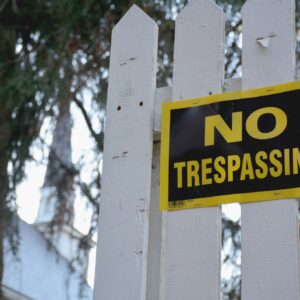
SIX NATIONS, ON – Six Nations Cayuga artist Samuel Thomas is a self-taught traditional Rotinonhsyón:ni raised-beadwork revivalist, with 37 years of beadwork to his name. Early in the New Year he will be lending his expertise while guiding participating collaborators on a powerful reconciliation arts project called Opening the Doors to Dialogue.
Thomas has recently been awarded a grant by the Canada Council for the Arts, the J.W. McConnell Family Foundation and the Circle of Philanthropy and Aboriginal People’s in Canada for the collaborating organizations’ inaugural {Re}conciliation initiative, which gave him the green light to launch the project on November 3. The grant will help Thomas cover the costs of travel across the country, the materials required for each session, and honorariums for the speakers coming in to participate.
Paula Whitlow, Museum Director at the Woodland Cultural Centre has offered support to Thomas and the project as a research partner, facilitator for the Six Nations sessions and the finished project’s first exhibitions in September 2016.
Opening the Doors to Dialogue is currently in the planning and development stage, but will launch in January. Thomas will be visiting the communities adjacent to the last standing residential schools in Canada, each providing one salvaged interior door to the school itself as the foundation for the project.
Thomas will then run a series of 3-day beadwork and dialogue sessions with participating community members both native and non-native, residential survivors, their families, and the church.
“I’ve asked for the churches to come and present their public apologies to start that dialogue,” says Thomas, “They put out public apologies but what I’ve explained to them is that I don’t know where they’ve put these apologies out. At a community level, the people haven’t heard those apologies. Really that’s sort of the opening of the dialogue between the Aboriginal people and non-Aboriginal peoples.”
The sessions will provide survivors and their families a platform to share their experiences and stories of the legacy left behind by the residential schools. Thomas has made every effort to provide all participants with the support they might need in the process.
“I would like to work with the Friendship Centres across Canada. I need the supports that are already in place there.” explains Thomas, “The mental health workers, the healing and wellness workers, the elder support groups, that kind of thing. Those supports are vital in doing any kind of work like this.”
Thomas has also made agreements with the churches to have their representatives be involved in the entire process. They will be responsive to the testimonies of the residential school survivors, as well as participants in the beadwork sessions, adding their own touch to the finished project.
The result of everyone’s work will be beaded materials cut and fixed into the door panels provided to Thomas. The doors will then be exhibited with audio recordings of the dialogue that was generated through the process of creating the work.
“Whatever organization I go into, I’m working on putting together MOUs of what is expected of them beyond when I come in and work with the residential school survivors and their families that it doesn’t end there. They have to continue some kind of initiative beyond that. It’s not a beginning and an end to the dialogue,” says Thomas.
“The whole project itself has a lot of layers to it, but I thought ‘until we speak we cannot be heard, until we listen we cannot heal.’ I don’t know that reconciliation is going to happen in our lifetime, and I don’t know if we’ll ever be completely healed from it, but we’ve got to start somewhere. It’s going to have to be the Aboriginal people to take the lead in that healing and reconciliation.”
For more information and updates on the beading sessions, visitwww.facebook.com/doors2dialogue











